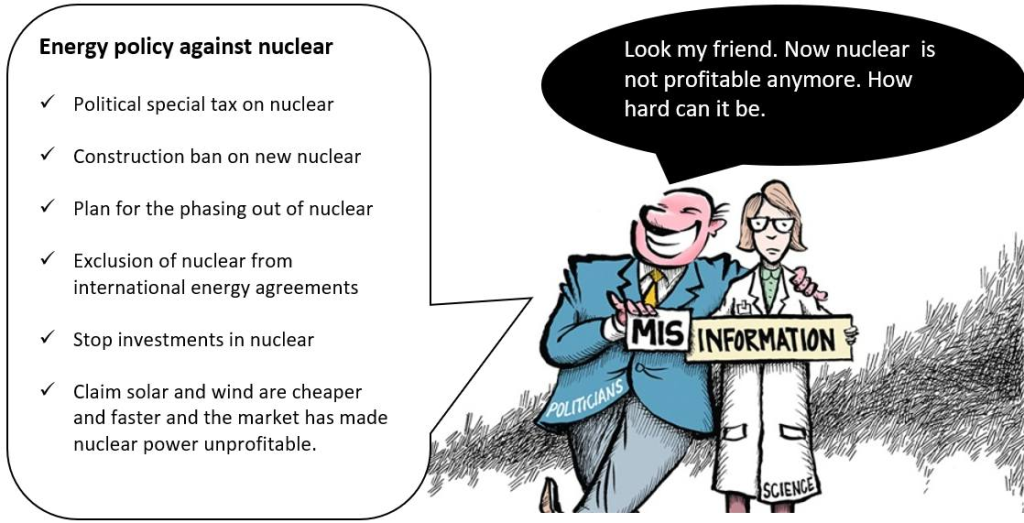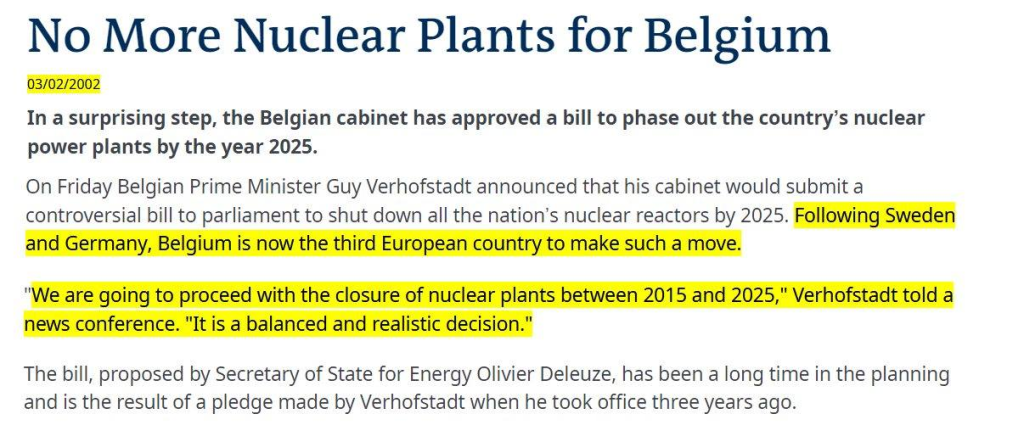Page under construction

Nuclear energy is just not profitable say both politicans and nuclear opponents. To confirm this, they use everything from the problems with the French nuclear plants, the 4 heavily delayed Gen 3+ projects in the west and the high interest rates on HPC3 in England. The early shutdowns etc.
Has nuclear just completely by itself, completely without help from politicians and the anti-nuclear lobby, just become too expensive and slow – i.e. unprofitable. Can we just blame the marked. Or has the market simply responded to the political climate in which they have been placed?
How did the problems of the 2020s came to be. Lets see.
Policy on reduction or total phasing out nuclear #
In the 1990s, 2000s and 2010s politicians in the West almost stood in line to implement anti-nuclear energy policy. Even in times when the problem of global warming became more apparent. They often wrapped their phase-out policy in ”climate policy”. Although nuclear is the largest clean source in all countries before their policies were implemented.


Construction ban on new nuclear and research into nuclear #
In 1986 Sweden introduced a law that banned construction and research into nuclear power. It came to be known as the Thought Prohibition Act and was exactly this, it read: “No one may prepare construction drawings, calculate costs, order equipment or take other such preparatory measures with the aim of constructing a nuclear power reactor within the country”.
Belgium in 2003 passed a law prohibiting the construction of new nuclear units intended for the industrial production of electricity by nuclear. Germany passede The 2002 Amendment to the German Atomic Energy Act. A law. The construction of new nuclear power plants was banned altogether.
Some countries did not manage to build any nuclear reactors but banned them. Ireland outlawed as an energy option in 1999, after nuclear energy was rejected in Ireland in 1979 and favared the development of the coal burning plant at Moneypoint in County Clare instead.
Nuclear-specific taxes #
In 2000 Sweden introduced a nuclear-specific tax on installed capacity, which gradually increased over time; in 2015, the tax raised about €435 million and gave subsidies to renewable energy.




